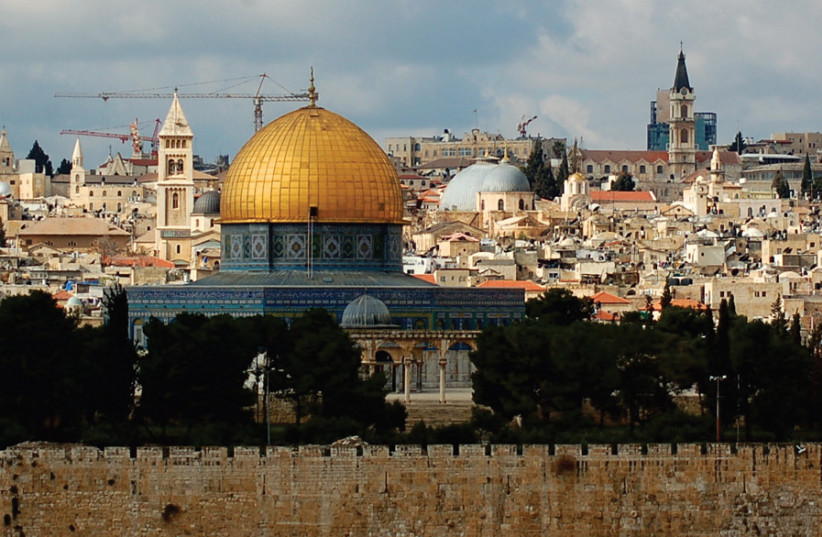When I came to visit for the first time in 1970, I had to adjust my perception. I realized there was also a West Jerusalem; that I could stand on the corner of any street and hear many different languages spoken. In the space of 10 minutes, I might see an old lady in the costume of some forgotten community; an American tourist with coiffed hair, wearing jeans and with several cameras slung across her shoulders; a monk with a shaven head and a long, brown habit; a group of Israeli soldiers; housewives with their shopping bags; a haredi Orthodox Jew garbed in black, wearing peyot (sidelocks) and tzitzit. I could eat in a restaurant, visit a cinema or a shopping mall, or do most of the things I did in my hometown Melbourne. Yet still, Jerusalem did not speak to me in a special voice.
Aliyah was never my idea, and when the whole family came to settle a year later, I was in deep depression. I understood we were doing it for our four children, but what about me? How would I ever understand this strange, convoluted language? How would I ever find anything to compensate for what I was leaving behind... a comfortable lifestyle, deep roots, family, friends, a profession? I was terrified.
Falling in love with a city is not so different from falling in love with a person. It is an emotion that grows slowly. You begin to notice what you had overlooked before. There is the quality of light that begins with a pearly dawn. When the sun shines, masses of gray stone are turned to gold. At twilight, the indigo shadows lengthen. The night sky is black velvet strewn with stars. Your senses become aware of an ancient perfume that wafts down from the Judean hills compounded of sage, thyme and rosemary. You hear the wind whispering in the pine trees, and echoes of a pain-filled history. You stroll through the Jerusalem Forest, where shy cyclamens in mauve and cream and wild violets nestle among the rocks.
When you walk in the Old City, your feet tread the stones King David danced on. A prayer at the Kotel seems to ascend straight to heaven, and you know that you are in a very spiritual place. When you say: “Ani Yerushalmi” (I am a Jerusalemite), you say it proudly, because of all the feelings you are unable to express in words. Parts of the city are shabby and down-at-the-heel, but the city is beautiful in a way you see not with your eyes but with your soul.
It took a few years before I became bonded to this city and its people. Now I have lived here for more than half a century, and although I’ve seen much of the world, this is where I want to stay. Like all Jerusalemites, I feel uniquely privileged, and although we can contribute little during our brief sojourn here, we know that Jerusalem is eternal. ■
Dvora Waysman is the author of 14 books, Her latest novel is Searching for Sarah.

